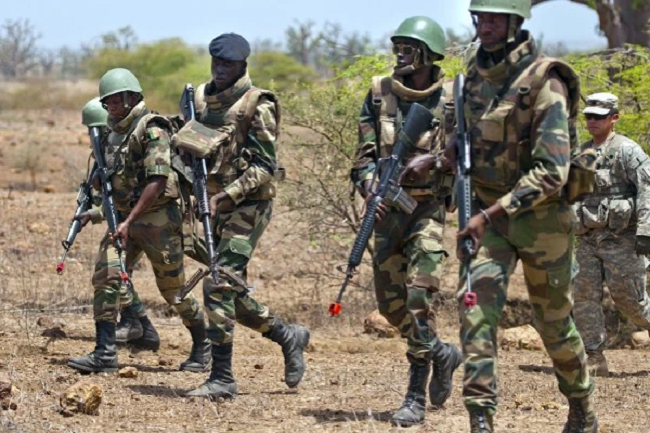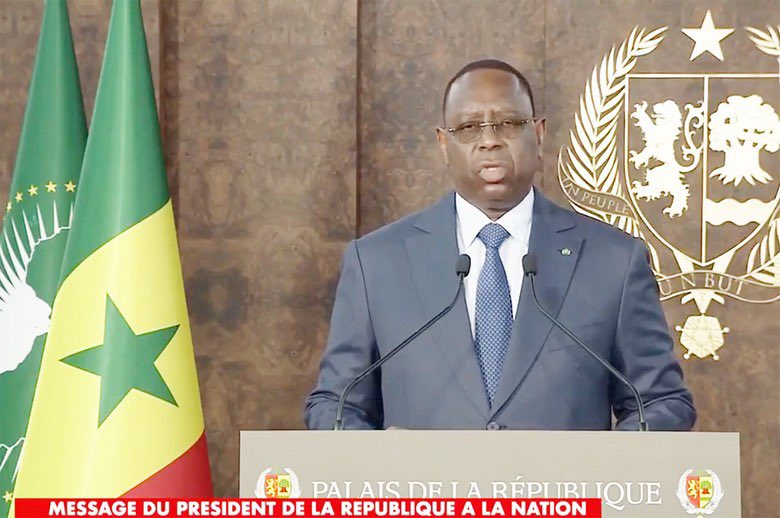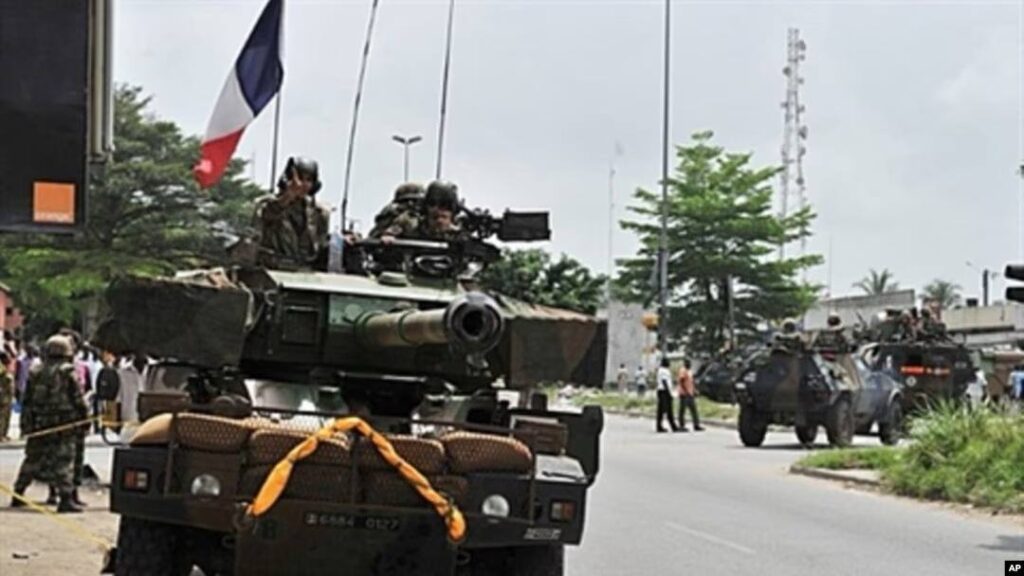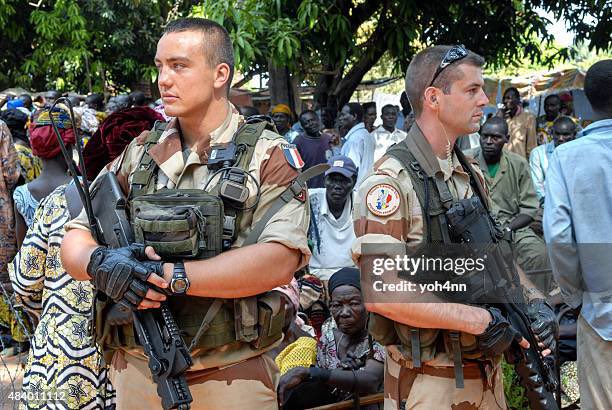France’s decision to withdraw its military forces from Senegal in 2024–2025 marks a major shift in its Africa strategy. This move is driven by a combination of regional, political, and strategic factors, reflecting the erosion of French influence in West Africa.
1. Regional Anti-French Sentiment
- Growing public hostility toward French military presence in former colonies like Mali, Burkina Faso, Niger, and Senegal has made continued deployment politically untenable.
- In Senegal, recent protests and nationalist rhetoric (especially among the youth and opposition) labeled the French bases as symbols of neocolonialism.
2. End of France’s Sahel Military Strategy
- After failures and unpopular interventions in the Sahel (e.g., Operation Barkhane), France has been winding down direct military involvement.
- With coups in Mali, Burkina Faso, and Niger expelling French troops, Senegal was the last major foothold in West Africa—but maintaining it became increasingly isolated and risky.
3. Senegalese Political Shift
- Under President Bassirou Diomaye Faye, elected in 2024 on a platform of sovereignty and anti-French sentiment, Senegal is redefining its foreign relations, pushing for greater autonomy from Paris.
- His government supports revisiting defense agreements, a signal to France that its era of military privilege in the region is ending.
4. Strategic Recalibration by Paris
- France is pursuing a “non-intrusive” Africa policy, favoring training, logistics, and partnerships over permanent deployments.
- It aims to prevent being a scapegoat for internal African crises while reducing costly and politically damaging military entanglements.
Risks and Consequences
For France:
- Loss of strategic depth in West Africa.
- Weakening of intelligence and counterterrorism presence across the Sahel.
- Shrinking diplomatic clout amid rising influence from Russia, China, and Turkey.
For Senegal:
- Short-term security gap, especially in regional anti-terrorism coordination.
- Risk of external actors (e.g., Wagner-linked forces) filling the vacuum, similar to Mali and Burkina Faso.
For the Region:
- Further unraveling of Western security networks, increasing fragmentation and potential regional destabilization.
France’s withdrawal from Senegal reflects deep structural changes in Franco-African relations. It is both a symbol of France’s diminishing role in its former sphere of influence and a response to popular demands for sovereignty and post-colonial rebalancing. The move marks a broader European retreat from African security affairs—and opens space for new geopolitical players in the region.
Russia has played an indirect but significant role in France’s withdrawal from Senegal, primarily by reshaping the security and political landscape of West Africa through information warfare, proxy influence, and support for anti-French regimes. While Russia may not have directly caused France to leave Senegal, it created conditions that undermined French influence and amplified local pressure to dismantle French military presence. Here’s how:
Russia’s Role in France’s Withdrawal from Senegal
1. Narrative War: Weaponizing Anti-French Sentiment
- Russian-linked media outlets (e.g. RT, Sputnik Afrique) and Telegram channels have deliberately amplified anti-French narratives across Francophone Africa.
- These campaigns paint France as a neocolonial power, blaming it for economic stagnation, security failures, and political manipulation in countries like Senegal, Mali, Burkina Faso, and Niger.
- In Senegal, these narratives influenced public opinion, particularly among youth and opposition figures, intensifying demands for sovereignty and military disengagement.
2. Support for Military Regimes That Expelled France
- In Mali, Burkina Faso, and Niger, Russia (often via Wagner Group or its successors) supported or quickly aligned with military juntas that expelled French troops and advisors.
- This created a domino effect: once France lost legitimacy and bases in neighboring Sahel countries, Senegal stood as a political outlier—increasing pressure from both within and around to also “liberate” itself from Paris.
3. Strategic Vacuum and Offer of Alternatives
- Russia offered itself as an alternative security partner, presenting military training, arms deals, and elite protection services as part of a transactional package with no strings attached.
- While Senegal has not formally aligned with Russia, the fear of a similar transition likely made France see the writing on the wall: sooner or later, the government or public would push for their exit.
4. Encouraging a Regional Realignment
- Russia’s growing influence in Guinea, Mali, Niger, Burkina Faso, and even CAR has created a de facto anti-Western bloc in West Africa.
- This shifts regional dynamics away from cooperation with Western military powers toward more nationalistic, militarized, and multipolar policies.
- France, therefore, preemptively withdrew to avoid a humiliating expulsion or further damage to its image.
Conclusion
Russia’s role in France’s withdrawal from Senegal is not about direct confrontation, but geopolitical erosion through disinformation, proxy influence, and psychological operations. Moscow benefits from the collapse of France’s military prestige in West Africa—it creates space for Russian expansion, undermines NATO cohesion in Africa, and feeds its global narrative of Western decline.
In short: Russia didn’t push France out of Senegal—but it loosened the foundations beneath France’s feet.
The withdrawal of French military forces from Senegal marks a historic shift that carries significant consequences for West Africa’s stability, security architecture, regional geopolitics, and foreign relations. Below is a breakdown of the most likely consequences for the region:
1. Security Vacuum & Rise of Non-State Threats
- Loss of intelligence and logistical support: France provided counterterrorism assistance, surveillance, and rapid-response capacity. Without it, Senegal and neighbors will have reduced early warning and crisis responsecapabilities.
- Terrorist groups like JNIM and ISGS could exploit the vacuum to expand operations southward from Mali and Burkina Faso into coastal West Africa.
- Drug trafficking and arms smuggling may rise, as criminal networks exploit weaker borders and less coordinated enforcement.
2. Shift in Strategic Alliances
- Pivot to new partners: Senegal may strengthen ties with Turkey, China, or Russia, especially in the defense and intelligence sectors.
- U.S. or EU may step in, but are less likely to provide boots on the ground.
- Countries like Ivory Coast and Ghana could become new regional anchors for Western military presence, shifting the balance of security leadership.
3. Empowerment of Populist and Anti-Western Movements
- France’s exit validates anti-colonial and sovereignty movements in Senegal and across Francophone Africa.
- Populist groups may pressure other coastal nations (e.g., Ivory Coast, Benin) to expel Western forces.
- Islamist groups may use the withdrawal in propaganda, claiming it as a “victory” over Western powers.
4. Decline of ECOWAS Security Coordination
- ECOWAS depends on external support for intelligence and logistics; France’s departure may further fragment ECOWAS defense coordination.
- Sahelian instability may now move closer to Senegal, Guinea, and the Gulf of Guinea states without a strong security framework to counter it.
5. Geopolitical Realignment
- Russia, China, and Türkiye will likely seek to fill the void—offering military training, weapons, and infrastructure investments.
- These actors will reshape political dependencies, weakening Western influence in favor of multipolar or transactional diplomacy.
- Risk of competition among foreign powers playing out in local politics and security deals.
6. Impact on Senegal’s Political Landscape
- President Bassirou Diomaye Faye may face rising nationalist demands to cancel other defense pacts with France or the EU.
- Military doctrine, procurement, and alliances may shift toward non-Western providers.
- Opportunity to reassert national control, but with higher risks of strategic missteps or inadequate replacements.
Summary Table of Consequences:
| Category | Consequence |
| Security | Weakening of counterterrorism capacity; border vulnerabilities |
| Diplomacy | Pivot toward Russia, Türkiye, China |
| Regional Coordination | Fragmented ECOWAS military efforts |
| Political Stability | Boost to anti-Western populism |
| Economic/Strategic | New arms markets & investment flows |
| Terrorism & Crime | Expanded operational space for jihadists and smugglers |
In essence: France’s withdrawal from Senegal is not just symbolic. It dismantles one of the pillars of Western security infrastructure in West Africa and opens the door to strategic competition, instability, and foreign realignment in a region already under pressure from coups, extremism, and external manipulation.

More on this story: Senegalese President jumps at the opportunity to root out Casamance separatism

French

More on this story: French Troop Withdrawals and Africa’s Geopolitical Realignment




